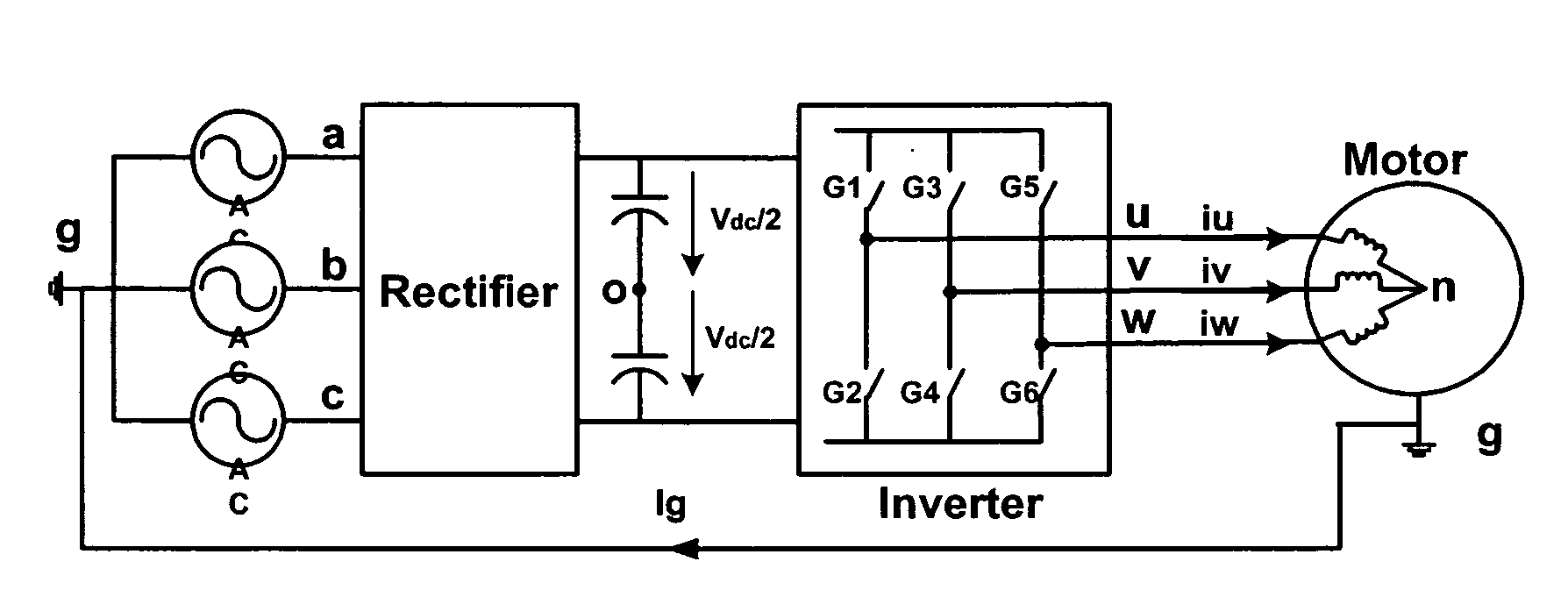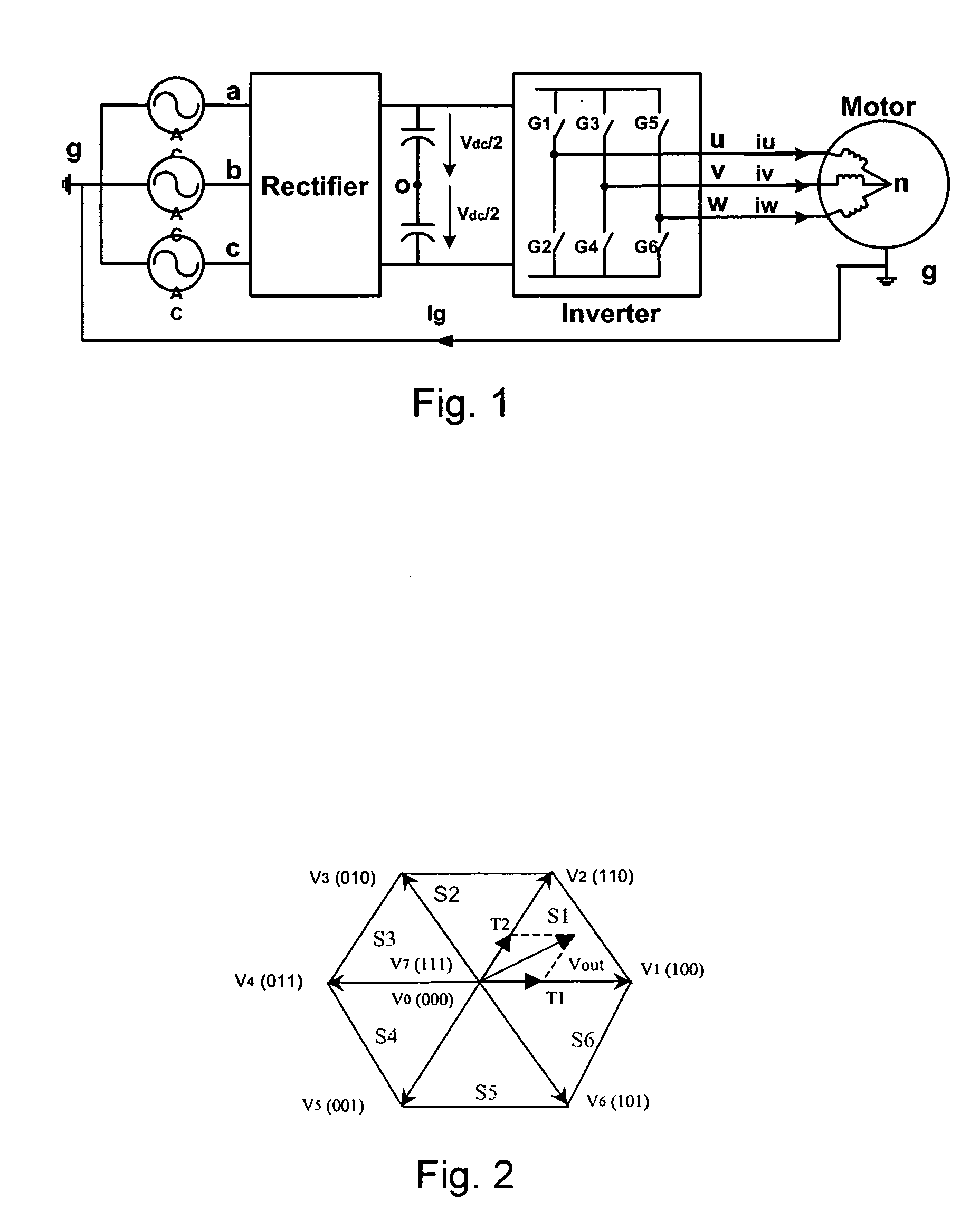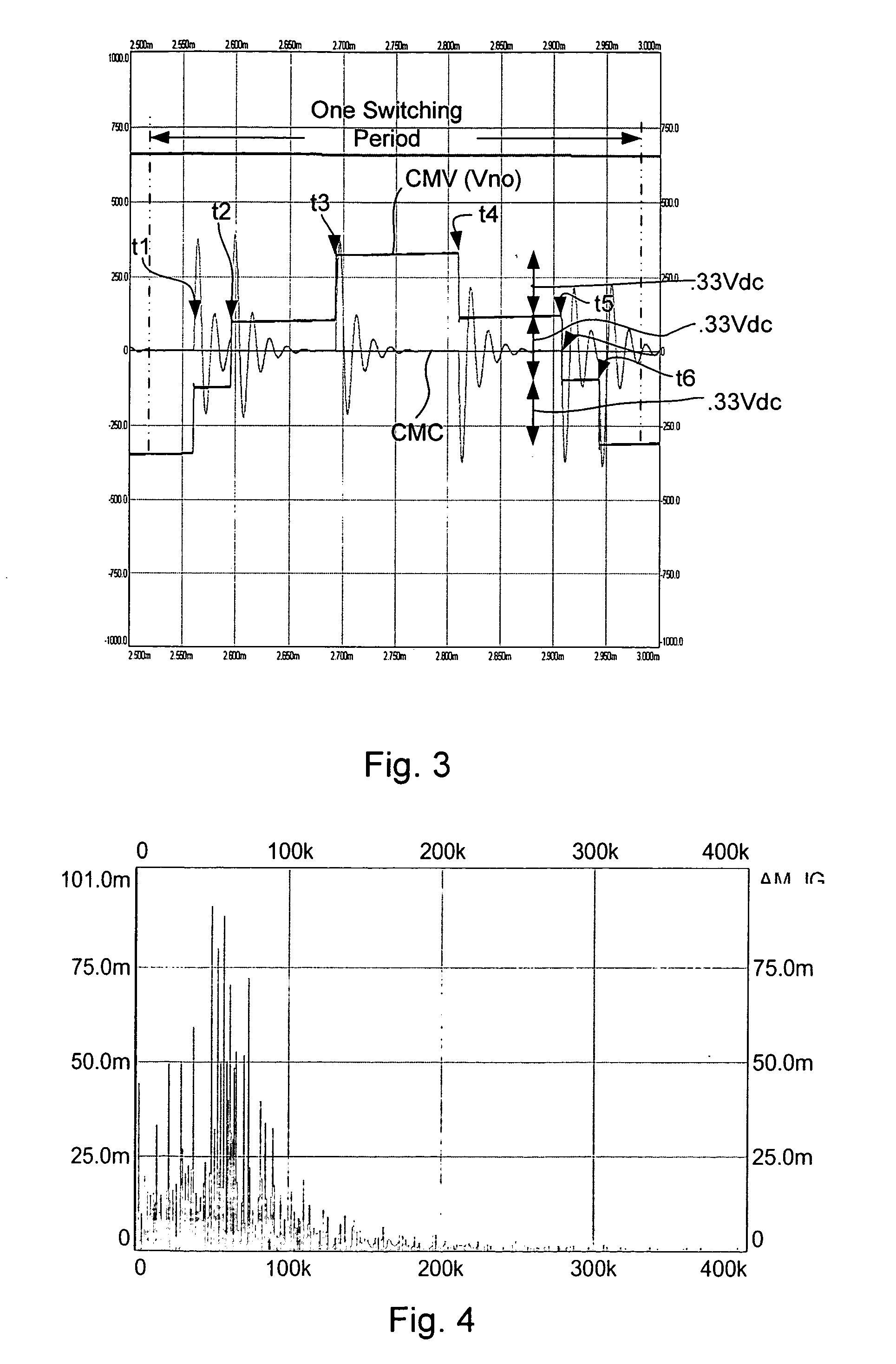Modulation methods and apparatus for reducing common mode noise
a technology of modulation methods and equipment, applied in pulse generators, pulse manipulation, pulse techniques, etc., can solve problems such as reducing system performance at a minimum, common mode current spikes, undesirable bearing currents, etc., and achieve the effect of reducing common mode nois
- Summary
- Abstract
- Description
- Claims
- Application Information
AI Technical Summary
Benefits of technology
Problems solved by technology
Method used
Image
Examples
Embodiment Construction
[0074]The common mode noise reduction schemes described herein are to be used with carrier-based PWM control systems and do not require dwell-time calculations. The schemes can be applied to active rectifiers as well as PWM inverters to reduce common mode noise which includes both CMV and CMC.
[0075]Herein three different schemes are disclosed that each have substantially identical results and that are to be employed under different circumstances. To this end, it has been recognized that some drives are programmable off the shelf to generate switch trigger patterns or control signals required to reduce common mode noise completely in software while others require additional hardware. The first scheme described herein is implemented completely in software that is run on an off the shelf drive, the second scheme is implemented in part in software run by a standard drive and in part by additional hardware and the third scheme is implemented in hardware that is added to a standard drive....
PUM
 Login to View More
Login to View More Abstract
Description
Claims
Application Information
 Login to View More
Login to View More - R&D
- Intellectual Property
- Life Sciences
- Materials
- Tech Scout
- Unparalleled Data Quality
- Higher Quality Content
- 60% Fewer Hallucinations
Browse by: Latest US Patents, China's latest patents, Technical Efficacy Thesaurus, Application Domain, Technology Topic, Popular Technical Reports.
© 2025 PatSnap. All rights reserved.Legal|Privacy policy|Modern Slavery Act Transparency Statement|Sitemap|About US| Contact US: help@patsnap.com



